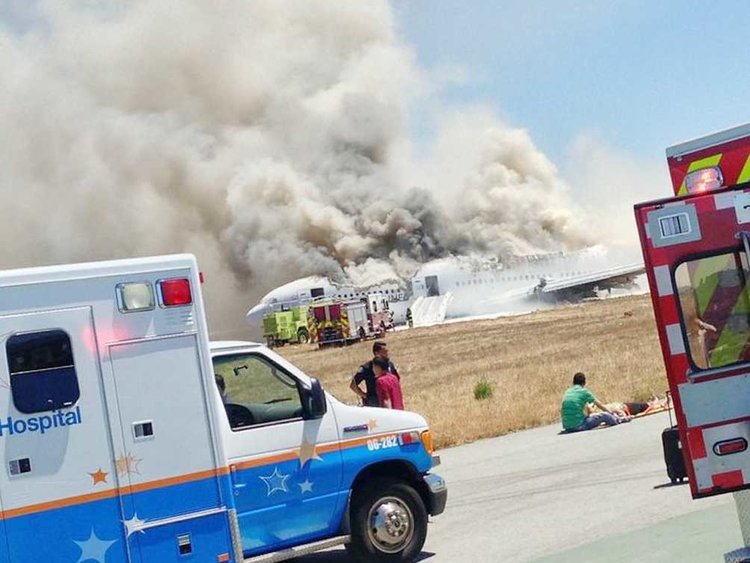Frequently Asked QuestionsAbout Critical Incident Stress (CIS)
What is CIS?Public Safety Employees play a unique role in our society and require unique personal skills. Most are action-oriented individuals with a high tolerance for stress. They are willing to take risks, prepared to make sacrifices, reluctant to give up, and able to suppress emotions to get the job done.
|
A public safety employee’s job can be a tremendous source of satisfaction. It can also be physically and emotionally draining, taking its toll on individuals, teams and families.
It may produce an occupational hazard known as Critical Incident Stress (CIS). Critical Incident Stress is a physical and/ or psychological response to events that provoke unusually strong emotions. Your response to such events (Critical Incidents) may be very distressing if you do not understand that such reactions are normal. Regardless of your experience, personality, or training, ALL public safety employee’s are susceptible to Critical Incident Stress.
Not everyone reacts the same way to the same emotional event. You may find yourself reacting to an event while another does not. An event may pass by without much reaction one time, yet a similar event a year later may provoke a strong reaction. Responses to emotional situations are the result of many different factors.
It may produce an occupational hazard known as Critical Incident Stress (CIS). Critical Incident Stress is a physical and/ or psychological response to events that provoke unusually strong emotions. Your response to such events (Critical Incidents) may be very distressing if you do not understand that such reactions are normal. Regardless of your experience, personality, or training, ALL public safety employee’s are susceptible to Critical Incident Stress.
Not everyone reacts the same way to the same emotional event. You may find yourself reacting to an event while another does not. An event may pass by without much reaction one time, yet a similar event a year later may provoke a strong reaction. Responses to emotional situations are the result of many different factors.
What are the signs of CIS?
Reactions to an event may be immediate (beginning at the scene) or delayed (hours, days, or months later). One event may even trigger reminders of a previous critical incident.
You may observe the following normal reactions within the first few days:
Delayed reactions may include:
Cumulative stress is not caused by a specific event, but is a state of chronic fatigue and frustration. It is the result of too many stressful events, and the signs include: Depression, fatigue, irritability, apathy, disillusionment, withdrawal, more frequent illnesses, and family problems.
You may observe the following normal reactions within the first few days:
- Nausea, sweating, tremors, chest pains, elevated heart rate and blood pressure
- Disorientation, slowed thinking and decision making, poor concentration, confusion, and decreased attention span
- Increased / decreased sex drive, excessive or too little sleep, change in appetite
- Anxiety, fear, grief, depression, withdrawal, irritability, resentfulness, and feelings of being overwhelmed
- Insomnia, flashbacks, vivid dreams and excessive use of alcohol and/or drugs
Delayed reactions may include:
- Increased depression and flashbacks
- Increased/decreased sex drive, excessive or too little sleep, change in appetite
- Loss of emotional control (excessive crying, anger, humor, etc.)
- Loss of interest in family or recreational activities
- Poor job performance, reevaluation of career, or fear of job-related activities
Cumulative stress is not caused by a specific event, but is a state of chronic fatigue and frustration. It is the result of too many stressful events, and the signs include: Depression, fatigue, irritability, apathy, disillusionment, withdrawal, more frequent illnesses, and family problems.
What causes CIS?
Research has indicated that certain situations are more likely to cause Critical Incident Stress in the emergency worker. These include:
- Death or serious injury of a co-worker
- Death of a child
- Death of a victim after a lengthy rescue attempt
- Suicide of a fellow worker
- Mass casualty incidents
- Events with sensational media coverage
- Situations in which the safety of the employee’s life is in danger
- Unreasonable expectations of being able to confront any situation without being affected
- Past experiences that have not been adequately dealt with
How can I handle CIS?
You can best help yourself by:
Before:
During:
After:
Reactions to Critical Incident Stress usually last 2 to 4 weeks. Longer reactions indicate the need for short-term psychological assistance.
- Learning what reactions are normal
- Learning to cope with CIS
- Seeking professional help when appropriate
Before:
- Get as much technical training as you can so you feel well prepared
- Learn stress reduction techniques, particularly deep breathing
- Establish relationships with people who understand your work and the stresses you face
- Educate your family about your work and let them know what they can do to help when you are under stress
During:
- Be active, take breaks, sleep if possible, and eat nourishing foods
- Use humor appropriately
- Allow for an expression of your feelings
- Drink plenty of water
After:
- Get physical exercise within 24 hours and daily thereafter
- Maintain a normal schedule and avoid boredom
- Express feelings
- Do not fight against dreams or flashbacks, as they are normal and will diminish
- Attend a Critical Incident Stress Debriefing (CISD) or solicit trained peer support.
Reactions to Critical Incident Stress usually last 2 to 4 weeks. Longer reactions indicate the need for short-term psychological assistance.

